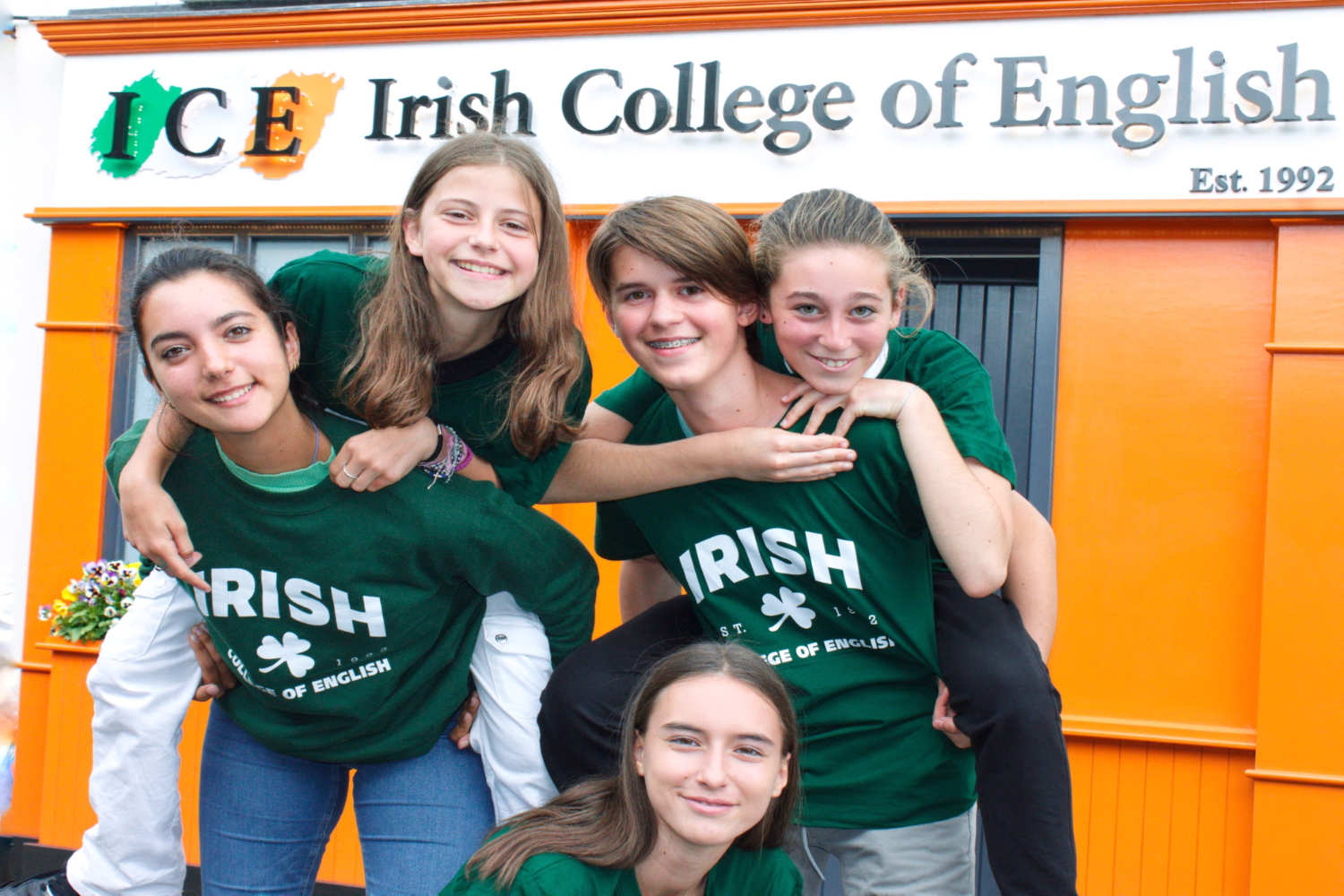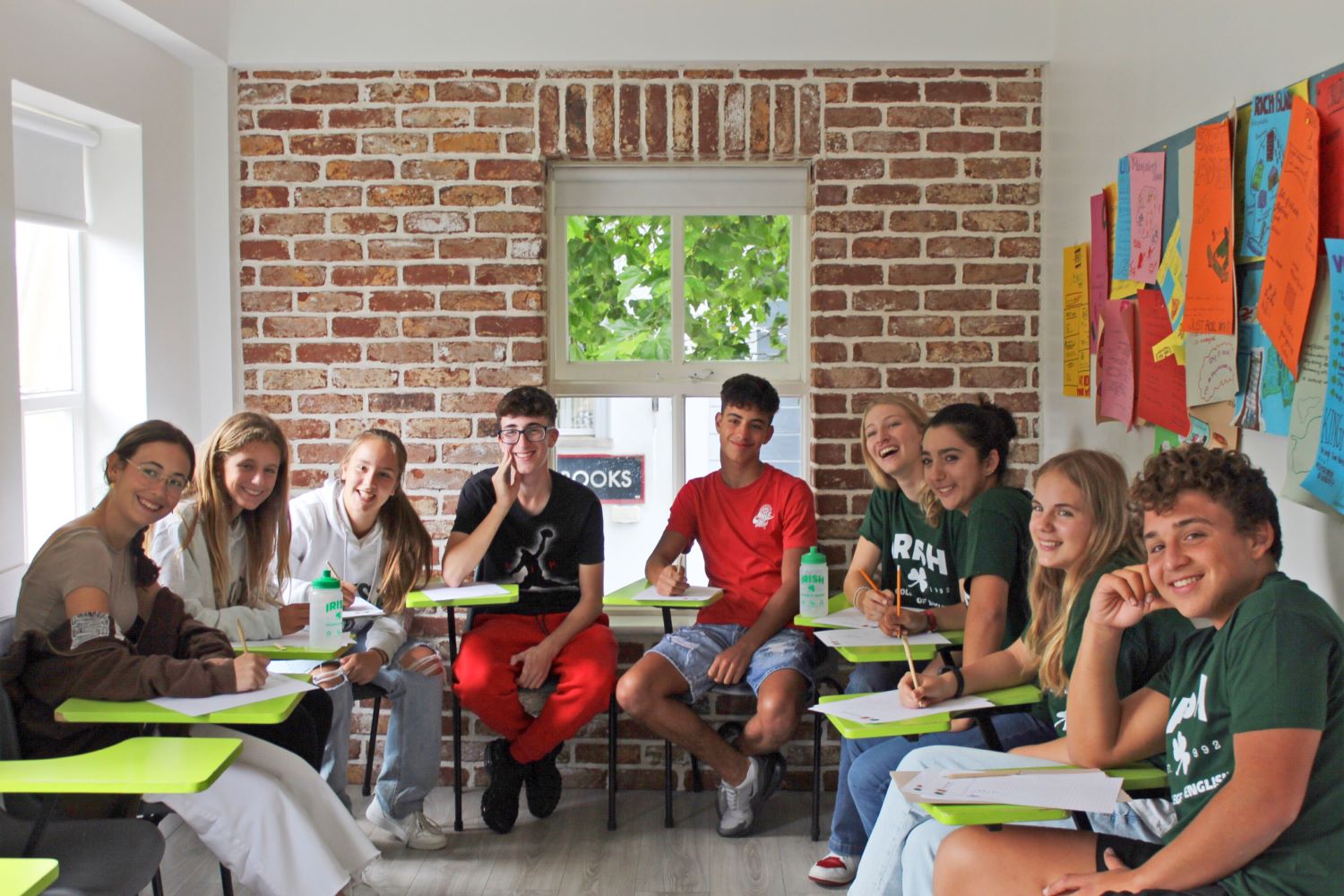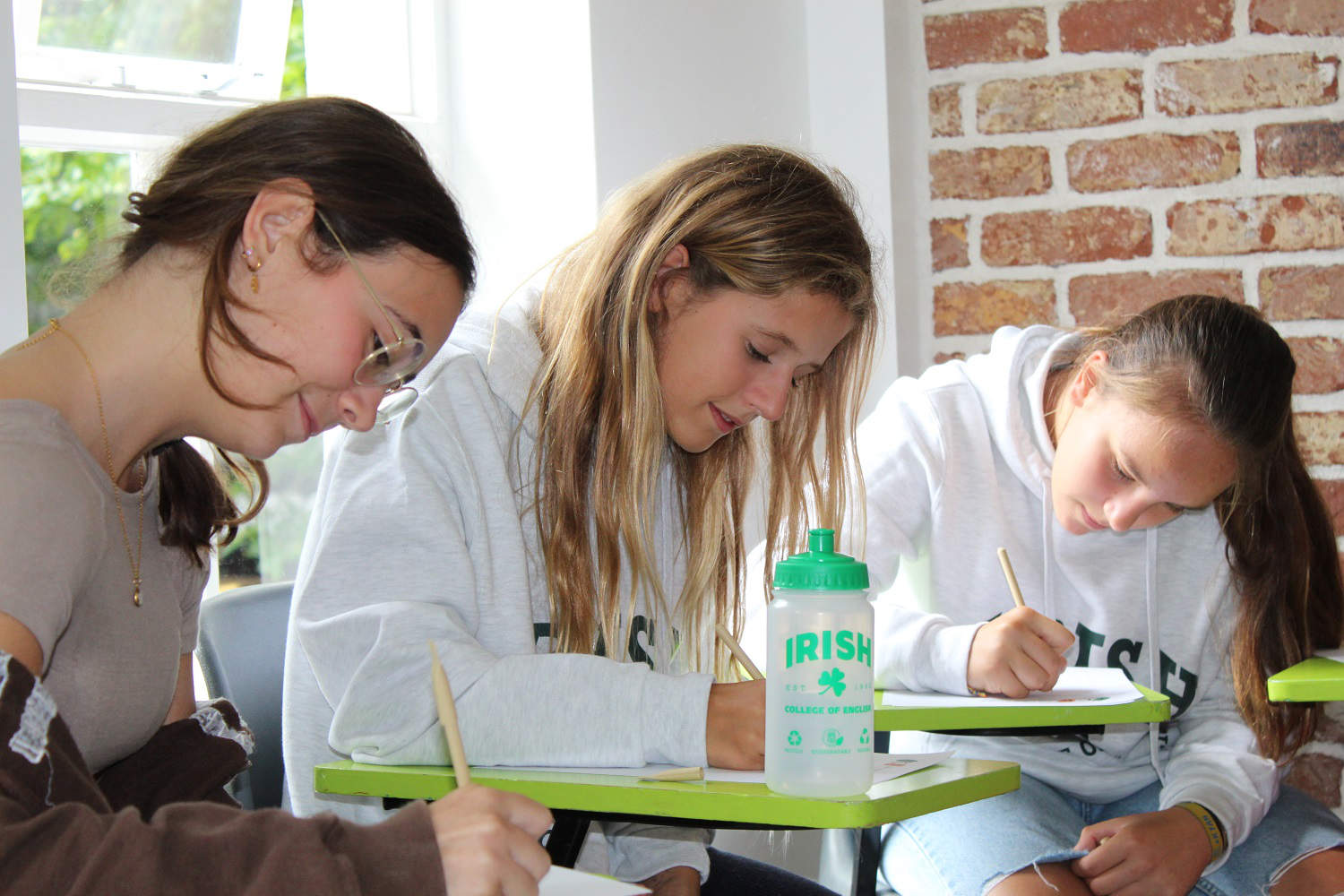Our Academic Year Programme (25 weeks tuition) is suitable for students needing a student study visa to Ireland and we offer assistance for visas for this course. Once you have registered onto this programme we will issue you with a letter of acceptance which you may use to apply for your study visa. Please click on the link to read more information about Adult Full Time English Courses.
EU/EEA Students:
Please note that students from the EU/EEA do not require a student visa to study English in Ireland.
Documents Required for Irish Visa Application:
If you require a visa to study in Ireland, here is a list of the documents that you need to present to your nearest Irish embassy or consulate with your visa application:
- A letter of acceptance from The Irish College of English (Recognised by the Department of Education) confirming that you have been accepted on a full time course of study lasting an academic year. Eligible programmes are included on the Department of Education and Science’s Internationalisation register of programmes approved by the Minister for Education and Science for the purpose of access to employment by students from outside the EU/EEA and Switzerland
- Evidence that the fees for the course have been paid in full. (Should your study visa be denied, we will return your fees in full except for € 200 which we retain for administration fees)
- Evidence that you have enough funds to maintain yourself for at least the initial part of your stay in Ireland.
- Copies of your educational qualifications.
- Evidence that you have Medical Insurance.
Additional Information
Work & Study in Ireland:
As a visa student in Ireland, you must register as a full-time student with the Garda National Immigration Bureau (GNIB – The Irish Police) and then you will also be permitted to work part-time in Ireland (up to a maximum of 20 hours a week and full-time during vacation periods) to support yourself. At the Irish College of English, we will help and guide you with this process.
For more information see: http://www.justice.ie
The Academic Year Programme for Non-EEA students is a 25 week tuition course within an 8 month study period with 15 hours of tuition per week, 9.00am – 12.15pm Monday to Friday. The course focuses on Rapid Learning for Communication in Spoken and Written English. Our highly qualified English teachers set students clear learning objectives and use the latest modern teaching techniques to provide language practice in speaking, writing, listening and reading, to improve English pronunciation, grammar and vocabulary. Students will prepare for the TIE exam and sit the exam at the end of the course.
- General English with TIE, course code: GET1. CEFR entry levl A2, CEFR exit level B1.
- General English with TIE, course code: GET2. CEFR entry level B1, CEFR exit level B2
- General English with TIE, course code: GET3. CEFR entry level B2, CEFR exit level C1
Working in Ireland
Non EEA/EU students are eligible to work 20 hours per week during the complete duration of their stay. Students are granted permission to work 40 hours per week providing they are on a holiday period from lessons during:
15th December – 15th January
May – August inclusive
Holidays
Non EEA/EU students are allowed an 8 week holiday period providing they have booked a course for a minimum of 25 weeks in duration completed within an 8 month study period, 15 hours per week, 09.00am – 12.15pm, Monday to Friday.
Students must have studied for a minimum of 8 weeks before taking any holidays.
For every 3 weeks studied students can take 1 week of holidays.
Students that are undertaking a course which runs through the schools closure period during December will automatically be assigned a 4 weeks holiday period.
Attendance Levels
As part of their visa requirement students are obliged to have a minimum attendance rate of 85%.
Attendance will be recorded on a daily basis and students will need to sign into and out of the school each day. If students are more than 15 minutes late for class or if they leave class more than 15 minutes early their attendance will not be counted for that day. Students will sign in and out of the school each day with Ian McElhinney. The class teacher will also keep an independent record of attendance for cross reference.
The attendance records will be reconciled on a weekly basis by Ian McElhinney under the supervision of the Director of Studies Jane O’Hagan. Students who have an attendance of less than 85% will be issued with a warning letter.
Sick Leave
Students must inform the school by email (info@iceireland.com) on the first day of illness if they are too unwell to attend lessons. Students that are absent for more than 2 consecutive days due to illness must provide the school with a medical certificate justifying their absence. The medical certificate should be scanned and emailed to the school or presented on the first day back. Attendance will not be applied during any sick leave period but a record will be maintained of all explained absences.
Students that are absent due to illness but fail to provide a medical certificate, risk their attendance levels dropping below 85% and may be issued with a warning letter or expulsion depending on their previous status.
Unscheduled Leave
To request unscheduled breaks students must, where possible, meet with the schools Director of Studies to discuss their individual circumstances and their requirement for a break from scheduled lessons. If the student is incapacitated or hospitalized an email from the student or a relative will be considered. In every case the student must provide evidence of illness or bereavement for a break to be considered.
Unscheduled breaks will be considered under the follow circumstances:
Illness of a family member who is certified by a medical practitioner as requiring constant care and attention for the period of recuperation from the illness.
Bereavement involving a family member.
Requests may be refused if the Director feels the request is disingenuous, no evidence of the illness of bereavement has been presented, the students attendance levels are below 85%.
All requests for leave whether approved or declined will be recorded on the students file.
Absenteeism and Expulsion
Ian McElhinney is responsible for the issuing of all warning letters. Warning letters will be sent my regular post and by email. Students are expected to inform the school of any changes to their address while in Ireland.
When a student’s attendance initially falls below 85% , the school will issue students with their first warning letter, students will have 4 weeks to:
(a) bring their attendance up to a minimum of 85% or
(b) if this is not possible they must attend 100% of their lessons
Failure to comply will result in the student receiving a second warning letter and must have a meeting with school administrational staff. Again the students will have 4 weeks to:
(a) bring their attendance up to a minimum of 85% or
(b) if this is not possible they must attend 100% of their lessons
Failure to comply will result in the student receiving a third warning letter and a meeting will be held between the student and the schools Director of Studies. The students will have 4 weeks to:
(a) bring their attendance up to a minimum of 85% or
(b) if this is not possible they must attend 100% of their lessons
Upon breach of this written and verbal warning, the student will be expelled from the Irish College of English, a letter will be sent to GNIB informing them of the students’ failure to come to class, the breach of their visa obligations, and the expiration of their course and medical insurance.
Exam
Non-EU students must complete an official examination at the end of the programme. Students taking the Academic Year Programme will prepare for the TIE exam and sit the exam in the final week of their course.
The Academic Year TIE Course will end with an examination in TIE (www.tie.ie). The TIE exam is an international EFL exam developed in Ireland under the aegis of the Advisory Council for English Language Schools (ACELS). The test is task-based with the content chosen by each individual learner.
Students enrolled on The Academic Year TIE Course are obliged to take the TIE examination at the end of their course. The fees for the TIE examination must be paid prior to arrival in Ireland and commencement of the course.
During the students first week of arrival the student will meet with Ian McElhinney and sign an agreement at the beginning of the programme stating that The Irish College of English will enter the student for the end of programme exams and that the exams are mandatory. The student must sign the agreement stating that they understand the exam is mandatory and agree that they will sit the exam. During this meeting an examination date will be chosen and the students will be registered for the exam.
Students will be contacted by the schools administrational staff reminding them of their exam date and time of examination 4 weeks in advance of the examination date.
The school will receive the examination results approximately 2 weeks after the examination date. The school will inform the student by email that their exam results are ready to be collected. If the student has already left the country the certificate and results will be sent by PDF email and the originals will be posted to them. A record of grades received will be available on request to students, INIS and relevant internal personnel and the relevant data protection permissions are agreed with students accordingly.
Insurance
Students requiring a student visa must have adequate medical insurance to cover their stay in Ireland. The policy must be in English. The school can arrange medical insurance before a student arrives or on arrival. Cost 105euro. This policy satisfies the requirements of the Irish Immigration officials.
Protection for Learners
If required the school has arrangements in place for the protection of students in the event that a programme ceases prematurely i.e. arrangements for a student to complete the programme with another provider(s) through membership of Marketing English in Ireland (www.mei.ie) . Student protection arrangements cover the period from when a student enrols on a programme until the time the student has successfully completed the programme and the end-of-programme exams.
Student Refunds
- There is no refund for a cancellation made within 21 days of the commencement of the course or if a student fails to complete the programme.
- Deposits are non refundable in all circumstances.
- Partial Refunds will be made where notice is given more than 21 days prior to arrival. This partial refund is as follows – deposits are non refundable, the remaining tuition fees will be refunded. Where host family accommodation has been booked, an additional 100 euro will not be refunded in order to compensate families.
- There is no refund for students who change from Intensive to other courses of lesser hours.
- There is no refund for fees of days missed during the course, for late arrival or early departure or for public holidays.
Refunds will be made within a maximum of 20 working days following the cancellation date and processed by Deirdre Rochford drochford@iceireland.com. If a visa application is refused, the funds will be returned within 20 working days of the decision being received by the provider, less cancellation charge of 200Euro
Complaints and Grievances
If students have complaints or grievances they should report them to the office immediately.
This includes (not exclusive list);
- Host family /accommodation problems
- Class issues (level/teacher/other students/ timetable/course duration/final examinations etc
The person responsible for dealing with these complaint is Susan McElhinney info@iceireland.com . The Irish College of English aims to resolve all complaints or issues within 48 hours and a maximum period of 7 days.
Accreditations














